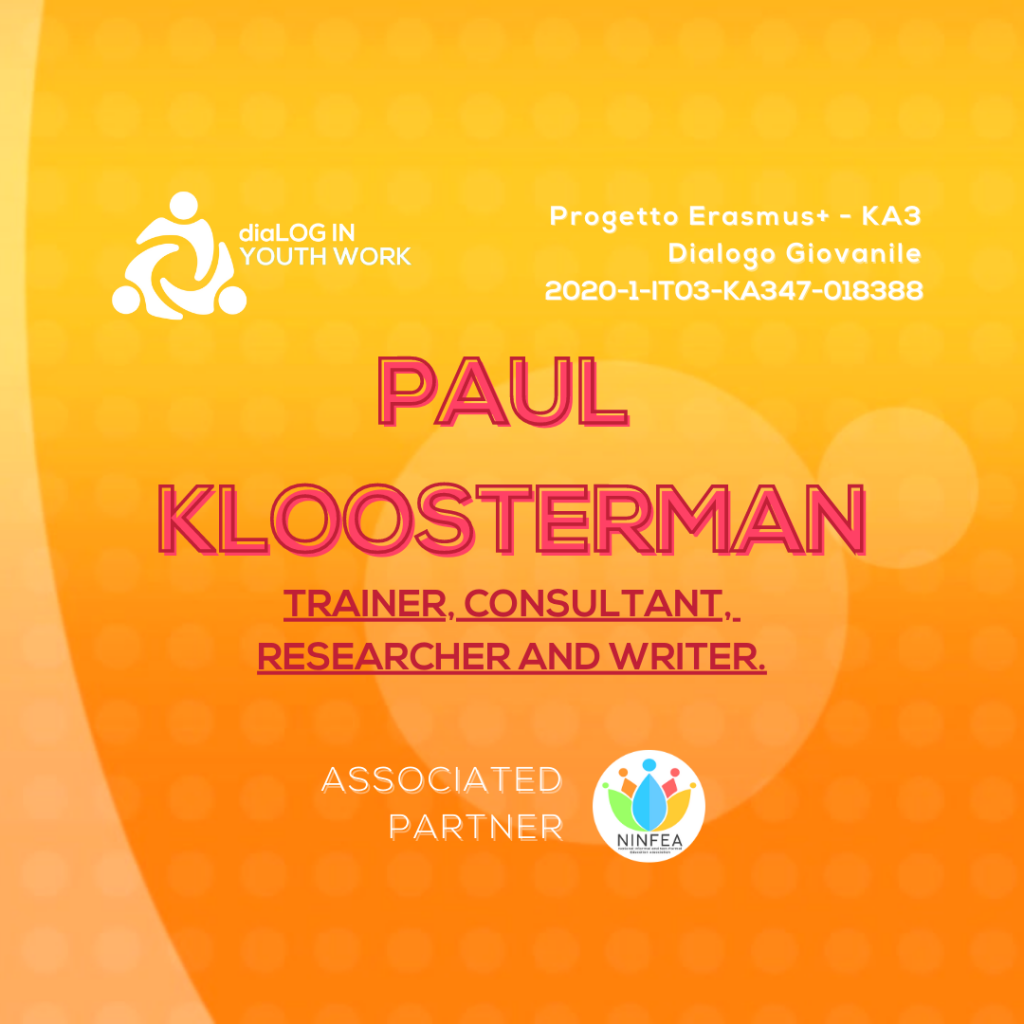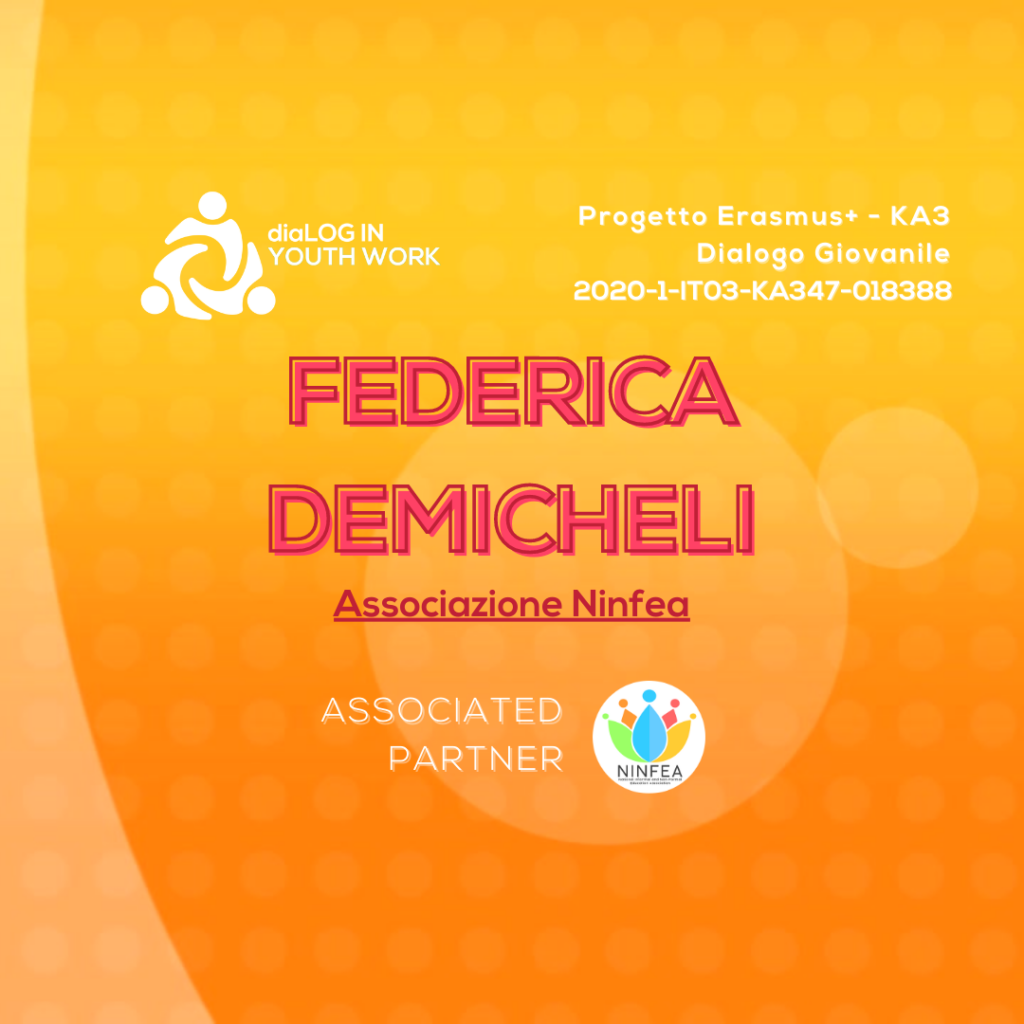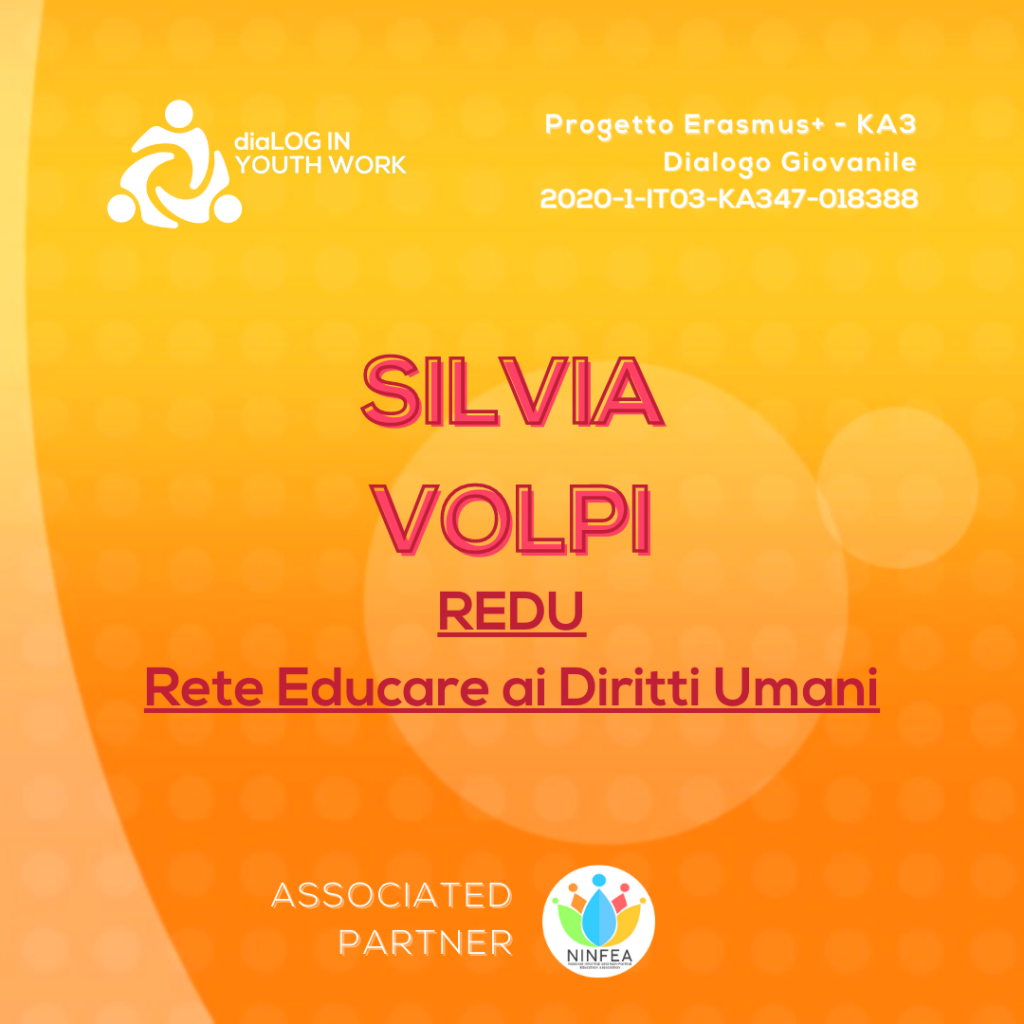Fifth and, for the moment, last pearl of Youth Work. Today we talk to Paul Kloosterman.”Pearls of Youth Work” are a series of video interviews, with related transcripts, carried out in the framework of the project DialogIn Youth Work, Erasmus Plus – KA347 – Youth Dialogue Projects.
Paul Kloosterman has been living in Calabria for fifteen years, in Amendolea, a small village 40km from Reggio Calabria. He is Dutch and lives here with his wife, also Dutch. He has a son and a daughter and he is also a grandfather. He moved to Italy fifteen years ago, first to Melito Porto Salvo, in Calabria. He has had an old house with a large piece of land for two years, in fact he is also a part-time farmer
Guarda la video intervista integrale:
Giosef Italy: What do you do in Youth Work?
I have been working in Youth Work for many years, forty years. For the last 25 years, I’ve been working in international Youth Work and I work mainly as a trainer, but I also do research and write articles and booklets that are always about learning. This is my greatest passion. A very important job for me is the Training of Trainers for European Youth Projects, we have been doing this course for 20 years and it is a very special course because it lasts one year, it is very intensive, I like it very much. Another important work for me is the Youth Pass, I also write booklets and I am a member of the Youthpass Advisory Group . When it comes to recognition in learning, the Youth Pass is an important tool.
Giosef Italy: how can we recognise the educational process and learning outcomes in learning by doing?
Maybe we have to see first what the learning outcomes of Youth Work are, because in the last years a lot of research has been done on Youth Work outcomes, on learning through Youth Work. There are many competences, there is a long list, such as developing self-confidence, self-esteem, communication skills, empathy, dealing with new situations, leadership, working in teams, problem solving skills. These are a lot of competences that youth work takes up. And they are important skills to function at school, with your family, with your friends, at work, in civic life, then they are all skills for life.
When we talk about recognition, in my opinion the first question has to be, recognition by whom? We always say, there is no one who recognises youth work, it is true it is also a problem but for me the most important is individual recognition, self recognition. It is fundamental that young people who participate in our activities are aware, recognise that they are learning. And this is a fundamental role for us Youth workers, facilitating learning, for me it means creating a situation, an environment where learning is not something difficult, hard, something that I do for the teachers, for the certification, on the contrary it’s something fun, interesting, something that I decide. I decide what I want to learn and how I want to learn, that’s important to me. It is important that we always talk to young people about learning. What did you learn, are you satisfied with how you did it, what are the other things you want to learn, what are the challenges for you.
For youth workers, asking questions is an important role, because in this way we help young people to become aware of and give voice to their learning, and so we can recognise the learning outcome together. In this way we enable the young people to communicate their learning.
Giosef Italy: How does youth work that values learning increase the quality of youth work practice?
In my opinion we can, as youth workers, contribute to a better world. I don’t want to say that Youth Work can change the world, it doesn’t, but we can contribute. We live in a world that is always changing, in a world full of uncertainty and ambiguity and we have to learn to deal with this ambiguity, this uncertainty, and it’s not something we learn at school. Actually I think that school has to change too, but here we are talking about Youth Work.
I believe that Youth Work can play an important role with the competences I mentioned before, but especially with the competence to deal with ambiguity and change.
“Being able to deal with ambiguity & change” for me is a fundamental competence and we need a new generation that is able to do that, that has that competence. For me Youth Work is an environment that offers space and possibilities to experiment, to make mistakes, to develop ideas, to realise even impossible ideas, in short to learn.
We have to support Youth Work with ideas, with training, with methods to improve the facilitation of learning. In my opinion, it doesn’t mean that we have to change Youth Work, that we have to change the activity we do. I don’t want Youth Work to change into training or formal education, the strength of Youth Work is that it’s fun, it’s exciting and we must not lose that. The second point is that we have to define better and communicate better what we do. We have to communicate it to young people, to parents, to politics at local, national, European level, and this is the most important.
But we have to define better what we do.
But the good news is that it is happening now. This project is an example, but there are many projects all over Europe where we do this work right now.
So for me the future of Youth Work will be beautiful.



